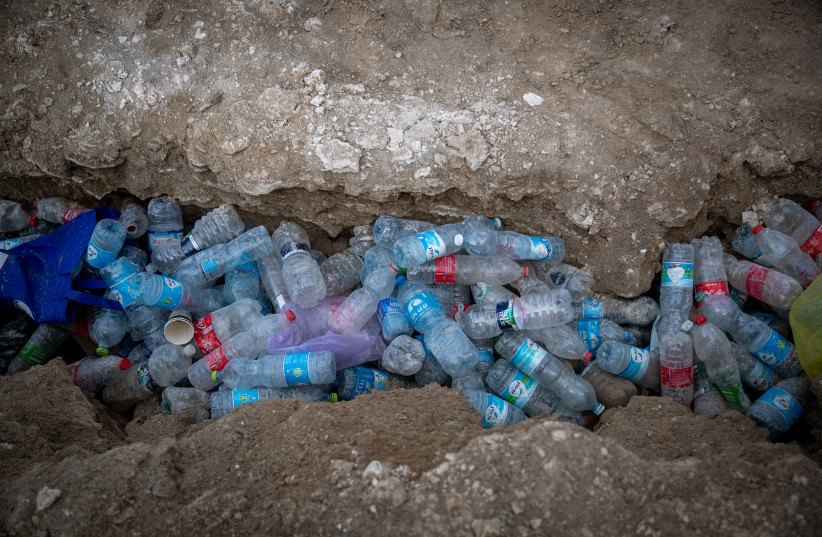More challenges arise for Israel's tax on disposable utensils

On November 1, Israel began taxing sales of disposable plastic utensils, including cups, plates, bowls, cutlery and straws at a rate of NIS 11 per kilogram.
Nearly a month after a new tax went into effect on disposable plastic utensils, the Finance Committee is now examining the policy more closely.
On November 1, Israel began taxing sales of disposable plastic utensils, including cups, plates, bowls, cutlery and straws, at a rate of NIS 11 per kilogram. However, lawmakers say Finance Minister Avigdor Liberman pushed the tax through too quickly to allow sufficient chance to debate the change.
The new tax, which approximately doubles the price for many items, is intended to reduce the use of disposable plastics, which are harmful for the environment. According to the law, manufacturers are responsible to pay the tax to the state, and they in turn pass higher costs on to the stores, and ultimately, the consumer.
Israelis are known to be some of the biggest consumers of disposable plastics in the world. They throw away about 70,000 tons of plastics each year, and spend NIS 2 billion on such items, according to the Environmental Protection Ministry.
Stores report that sales of such products have fallen as much as 50% in the first month.
However, numerous issues have come up. Manufacturers have requested longer payment terms to pay the taxes as they adjust to the new requirements. Others are outraged at the seemingly arbitrary way that the tax is applied to products of different levels of thickness or plastic coating.
Haredi politicians have also attacked the measure as discriminating against them, as the haredi (ultra-Orthodox) community uses plasticware at a higher rate than the rest of society.
At a Finance Committee meeting on Wednesday, manufacturer Amos Shaked noted that the paper cups produced by his factory are being taxed because they have a plastic content of 5%. This should be taken into account when calculating the tax, he said.
A tax on such paper cups hurts restaurants, said Tomer Moore, CEO of Strong Restaurateurs Together, an organization representing the industry.
“This law is going to be a direct hit to our pocket,” he said. “We seek to exclude paper cups from this law, or at least reduce the taxation on them to a minimum. Takeaway food is a significant revenue source for small places. On average, there are a million consumers a day who buy takeaway coffee in paper cups that are 100% biodegradable, with 5% plastic in them. This hurts our pockets directly.”
The tax would raise the cost of a cup of coffee by about 8% for restaurants and cafes, Moore concluded.
MK Uri Maklev added that manufacturers now have an incentive to use thinner plastics instead of thicker ones, which will now cost significantly more.
Shaked also said that trucks with disposable products from the Palestinian Authority, where the tax has not been imposed, have started coming in more frequently in the past month, allowing sellers to bypass the tax.
Committee chairman MK Alex Kushnir concluded the meeting with a request to investigate these issues before the next meeting.
The Environment and Climate Change portal is produced in cooperation with the Goldman Sonnenfeldt School of Sustainability and Climate Change at Ben-Gurion University of the Negev. The Jerusalem Post maintains all editorial decisions related to the content.
Jerusalem Post Store
`; document.getElementById("linkPremium").innerHTML = cont; var divWithLink = document.getElementById("premium-link"); if (divWithLink !== null && divWithLink !== 'undefined') { divWithLink.style.border = "solid 1px #cb0f3e"; divWithLink.style.textAlign = "center"; divWithLink.style.marginBottom = "15px"; divWithLink.style.marginTop = "15px"; divWithLink.style.width = "100%"; divWithLink.style.backgroundColor = "#122952"; divWithLink.style.color = "#ffffff"; divWithLink.style.lineHeight = "1.5"; } } (function (v, i) { });

